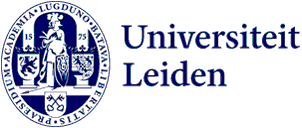
Headache e-diary aimed at more personalised help for patients and physicians
Funded by a ZonMw grant, the LUMC and the Health Campus The Hague will be working with headache patients on research into the use of an electronic headache diary. This resource can help patients gain a better understanding of their migraine attacks and, together with the physician, produce the best treatment plan.
In the Netherlands, 33% of women and 13% of men suffer from migraine at some time in their life. At present, very little is known about factors that trigger migraine attacks or about the effects of treatments. The Leiden Headache Center of the LUMC, led by neurologist Prof. Gisela Terwindt, has therefore been conducting research over the last few years on whether a headache e-diary might provide useful information. For this purpose, she developed an app in collaboration with Interactive Studios: the headache e-dairy in the Patient Journey App; patients have been helping her to test how it works.
Gold standard
Nadine Pelzer, neurologist and researcher at the LUMC and Health Campus The Hague, explains: ‘Patients filled in the headache e-diary and a physician’s diagnosis was the gold standard to validate the data. We also asked about satisfaction with the e-diary, to learn more about how the diary was working for patients and the treating physicians. We made some adjustments during the study, so that now, for example, you can see the relationship with menstruation in women. Both physicians and patients can therefore see immediately if attacks last longer around the time of menstruation, and together can quickly adjust the treatment to this. The e-diary also fits in with the wish for remote healthcare, as it saves time and hence money. We can see what’s happening with our patients in real time, because we receive the same summary as the patients on their mobile. The headache diary is now also used in several other headache centres and we hope that many more neurologists will start using it.’
Further improvements
Over the next two years, the Leiden Headache Center will be working with headache patients to see whether further improvements can be made in the use of the headache e-diary, initially within hospitals. The aim is to also use the headache e-diary in first-line healthcare. ‘We therefore want to start working with general practitioners,’ says Pelzer. ‘So we’re hoping to get a new grant for this; the infrastructure is already robust, thanks to the collaboration between LUMC and Health Campus The Hague. Ultimately we want our e-tools to help take some of the pressure off healthcare.’
For more information, www.hoofdpijnonderzoek.nl
Banner photo: Ivan Aleksic / Unsplash
Collaborate with Population Health Living Lab the Hague
Leiden University’s Population Health Living Lab The Hague interdisciplinary research programme focuses on the health of a group of people rather than of an individual. The more medical data you collect about the health of certain groups of people − for example, people living in the same city or neighbourhood − the more you can learn about how the long-term health of people in this group will evolve. Would you like to find out more or collaborate with us? Please contact initiators Mattijs Numans and Egbert Vos.
